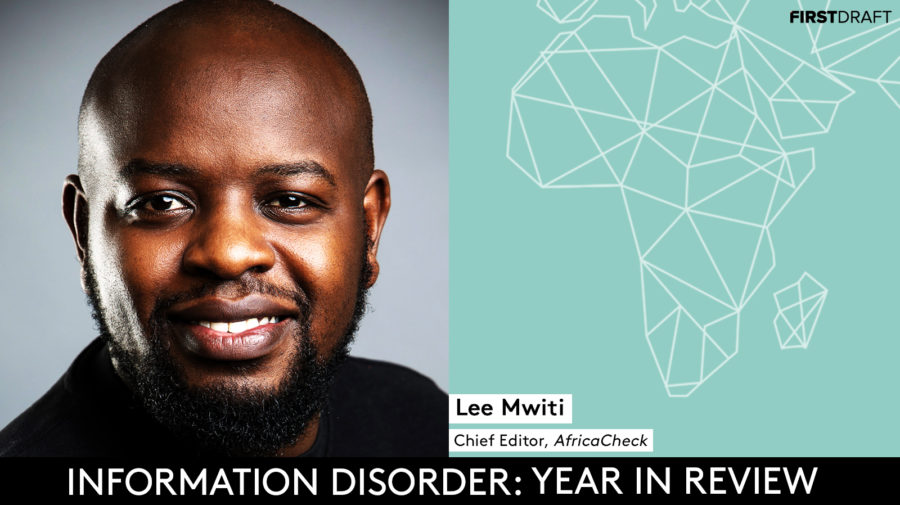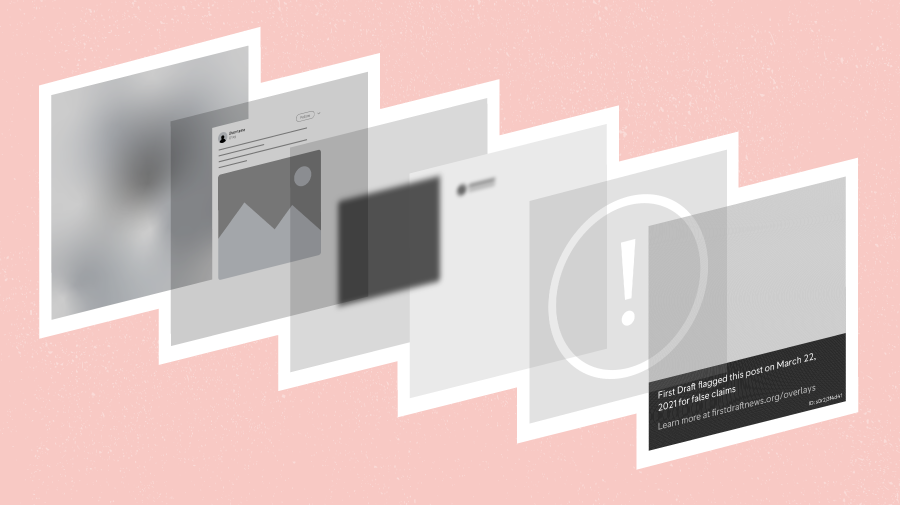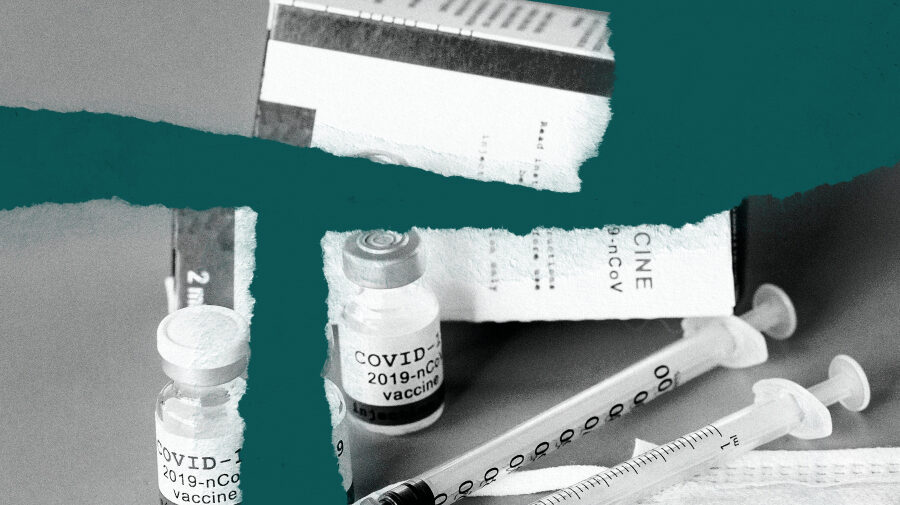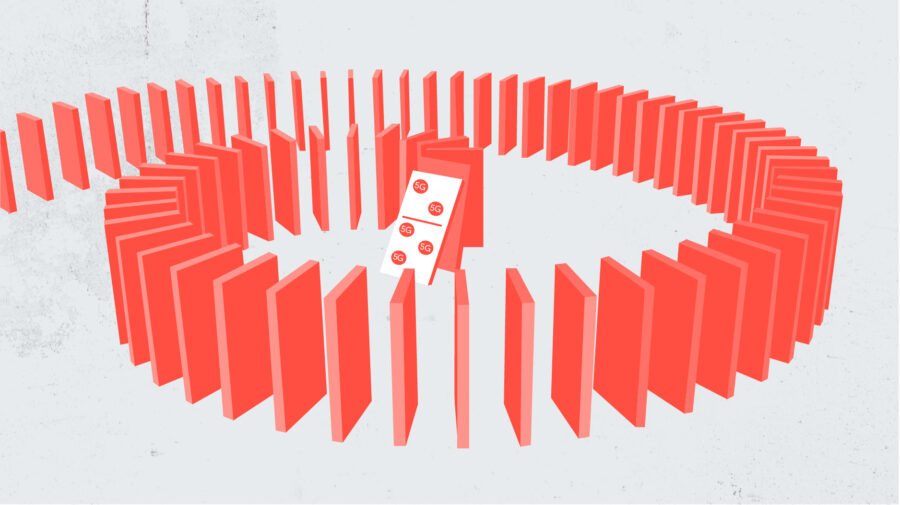Mis- and disinformation moved up the news agenda over the last 12 months as researchers, journalists and the public faced unprecedented problems navigating the online news ecosystem. Information Disorder: Year in Review hears from experts around the world on what to expect — and how to be more resilient in 2020.
Lee Mwiti is the chief editor of Africa Check, the continent’s first independent fact-checking website. He focuses on fact-checking misinformation across several African countries from Johannesburg, where he is based.
First Draft: What was the biggest development for you in terms of disinformation and media manipulation this year?
Lee Mwiti: We work in a region which for historical reasons, such as sharp digital divides and low access to accurate information, has been especially vulnerable to information disorder. This is why we increasingly think that to give audiences a fighting chance we need to ramp up media literacy campaigns.
However, from our experience fact checking in four African countries (Kenya, Nigeria, South Africa and Senegal), we are seeing more appreciation of false information and its consequences.
We have no doubt that as soon as we can measure this, which we are working on through a nascent research programme, the findings will pleasantly be of more general awareness.
What is the biggest threat journalists in your part of the world are facing in 2020 in terms of information disorder?
We have seen concerning moves towards shrinking the space for freedom of expression, with authorities citing online misinformation as justification.
Nigeria started out by seeking to employ public awareness campaigns around misinformation, but is now debating a ‘social media bill’ that has generated considerable angst.
Kenya also has a similar controversial bill to regulate social media in the works, while even Senegal, an African poster child for democracy, has seen charges brought against citizens for allegedly seeding false news through WhatsApp.
Even in South Africa, which has traditionally had more latitude, the media currently finds itself under a harsh spotlight in what is an increasingly tightly contested online space.
“Simple reverse image searches tend to go a long way in this region” – Lee Mwiti
What tools, websites or platforms must journalists know about going into 2020?
Of course websites like First Draft’s are a rich resource, as is Bellingcat’s Investigation toolkit. And Casey Newton’s regular focus on big tech is quickly becoming required reading. But sometimes it is the simplest approaches that yield the best results.
Simple reverse image searches tend to go a long way in this region, as our work has found that images and videos that have either been manipulated or used in a false context constitute a majority of what we check.
Advanced searches on search engines or platforms like Twitter can often be enough to question the authenticity of claims. And it would be remiss of me not to highlight the relentless work of fact checkers under the International Fact-Checking Network.
Thank you @LMAfrican and @laurakapelari for coming to teach us about @AfricaCheck’s fact-checking mission. Your work in fact-checking false information and knowledge on why it requires a different approach in the Global South is much needed in today’s world. pic.twitter.com/5o9rj8ous8
— Twitter Research (@TwitterResearch) November 8, 2019
What was the biggest story of the year when it comes to these issues of technology and society?
Immigration is a hot-button issue in South Africa, and often gives rise to xenophobic attacks against undocumented migrants from neighbouring countries.
August and September 2019 saw a spate of such attacks, but what was significant was that they were fanned by misinformation, leading to a diplomatic fallout. Many of the graphic videos and pictures shared online supposedly showing attacks against foreign nationals in South Africa, were unrelated to the recent outbreak.
Free online tools would have been useful, but as mentioned earlier, access to accurate information is yet to reach a critical mass.
When it comes to disinformation in your country, what do you wish more people knew?
That checking questionable information is not complicated and has immense benefits to society. Policy based on disinformation can hurt life outcomes and weaken democracies.
If you had access to any form of platform data, what would you want to know?
How misinformation actually plays out in African countries. We see a lot of solutions tailored for and tested out in the Global North, but which struggle for traction in developing countries because they do not speak to the same faultlines and cleavages here.
Parachuting these in and attempting to retrofit them is unlikely to bear much fruit if little time is spent understanding the local lay of the land. For example, daily sustenance and communal access to resources matter more on the continent than ideological divides.
This interview was lightly edited and condensed for clarity.
Stay up to date with First Draft’s work by becoming a subscriber and follow us on Facebook and Twitter.






